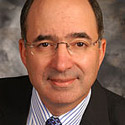01:40 PM
Regaining N.Y.’s Financial Glory?
The SEC's vote to reduce the impact of Sarbanes-Oxley by reducing audit and sign-off requirements on firms' financial controls is a positive step, but will it bring back growth to the U.S.'s financial markets? While Sarbanes-Oxley has been one reason the U.S. is losing our financial prowess to Europe, the watering down of SOX alone won't bring underwriting volumes back to the states — at least, not immediately. There are other issues at play here.
While SOX is a wonderful whipping boy, there are three critical pillars at the foundation of the U.S.' loss of the capital-raising crown: technology and connectivity, which are shrinking the globe; the balance of trade; and low interest rates. Improvements in technology and connectivity mean the world is flat, and more than just manufacturing jobs can be relocated around the world. Software can be written in China, call centers can be relocated to India and analytical challenges can be solved in Russia, for example. The flat-world phenomenon means dollars are headed overseas in droves.
Further, the increasing sourcing of manufacturing and services from China, Russia, India and other countries has increased their gross domestic product (GDP) and wealth significantly. In addition, the spike in energy costs last year drove capital from the U.S. to the Mideast in tanker loads. As a result, foreign countries are awash in U.S. currency.
Now, overseas GDP growth and business expansion also means a greater need for capital overseas, as well as greater overseas employment and wealth. Of course, that new foreign wealth needs to be invested — and as foreign companies grow, there are more investment opportunities for local investors outside of the U.S. markets.
In addition to pushing foreign investors to overseas markets, greater foreign growth also pushes U.S. investors into overseas markets. Over the past two years, overseas markets have rebounded significantly more than U.S. markets. This has caused a significant outflow of U.S. capital.
The lack of U.S. market appreciation and the trend of U.S. corporations generating significant profits but lackluster stock market returns combined with low interest rates has made U.S. markets fertile for mergers and acquisitions, and privatizations. This provides fewer U.S. investment opportunities and pushes investors to look for other investment vehicles. Low interest rates also push the U.S. dollar lower, and a declining dollar chases away foreign investment. When tied with a low-yielding stock market, this means overseas dollars tend to stay overseas.
The political front hasn't been friendly to overseas investors either. Besides an unpopular Mideast policy, the halting of the Dubai ports deal and the squashing of the Chinese CNOOK/Unocal deal, our government's desire to reduce illegal immigration by expelling aliens and installing a 700-mile fence is not promoting the free movement of capital (both human and investment) as we have in the past.
If that isn't enough, our poor placement on the time zone map makes London a more-conducive location to domicile a global investment bank. London more easily services the East, Mideast and West, as Greenwich Mean Time straddles both New York and Tokyo, while the New York/Tokyo gap and the London/California gap are counter cyclical.
So, while the easing of Sarbanes-Oxley is something to celebrate, it won't bring the traditionally New York-based investment banking business back home tomorrow. And while New York won't be relegated to the sidelines just yet, you may need to switch your morning beverage from Starbucks Sumatra to Fortnum's Earl Grey.
Larry Tabb is the founder and CEO of TABB Group, the financial markets' research and strategic advisory firm focused exclusively on capital markets. Founded in 2003 and based on the interview-based research methodology of "first-person knowledge" he developed, TABB Group ... View Full Bio





















